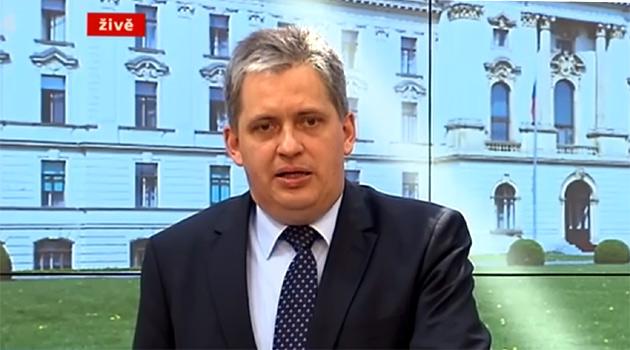Most of the staffers of the Czech Government Agency for Social Inclusion have been on strike since yesterday. They are demanding "autonomy and independence" for their institution, which is currently under the purview of Czech Human Rights Minister Jiří Dienstbier (Czech Social Democratic Party – ČSSD); news server Romea.cz publishes the employees’ declaration in full translation below:
Dear Ladies and Gentlemen,
I am hereby opening the press conference to announce that 59 employees of the Czech Government Agency for Social Inclusion have gone on strike. This is a demonstrative strike in which 88 % of the Agency’s employees are participating.
Our main job description – helping the most impoverished inhabitants of the Czech Republic – is currently at risk. After the sudden removal of the director of the Agency for Social Inclusion and the announcement of a plan to chaotically split it up, we participated in several negotiations which unfortunately have not led to any results.
On the contrary, the Human Rights Minister has failed to revive our faith in the hope that we will be able to perform our work in a meaningful way, to a high standard, and on the basis of the principles that defined the Agency when it was founded in 2008. The Agency as a project is ending this year and the Government must decide how it will continue to be set up and run.
The Agency was twice promised, through Government resolutions in 2008 and 2012, that if its activity proved worthwhile it would be on the road to functioning autonomously – for example, as an organization separately administered and receiving state funds. The current steps taken by Minister Dienstbier are leading in the exactly opposite direction, toward keeping the Agency as part of the Human Rights Section and increasing the control over it that is exerted by the Czech Government Inter-ministerial Commission on Roma Community Affairs.
On the basis of our experience, we consider it important to strengthen the Agency as an institution that is supra-departmental, one that will not just be linked to the human rights agenda but that will be a partner to the Education Ministry, the Health Ministry, the Interior Ministry, the Labor and Social Affairs Ministry, and the Regional Development Ministry. Currently more than 36 municipalities are collaborating with the Agency that have applied to cooperate on their own initiative.
The Agency works mostly in remote regions where their staffers of frequently the only representatives of the central state administration who aid local governments in solving very pressing social problems. The Agency guarantees that support from the European funds will reach the most needy on the basis of the needs identified and negotiated from below at the municipal level.
The procedures the Agency has developed over the last six years are unique in the Czech Republic and are mentioned abroad as examples of good practice. For this approach to have long-term results, for EU money not to be wasted on unsystematic projects, the essential conditions for the Agency’s work must be provided.
Those conditions are now at risk. The key conditions for our work are:
1. Autonomy and supra-departmental status, which will guarantee that representatives of the Agency will be able to negotiate in the interests of the impoverished with all of the relevant ministries as an equal partner. The Agency has been anchored in both international and national documents as a body of this kind. This could be guaranteed through a Government resolution on the continuation of the Agency’s work which would clearly define its future position within the framework of the state administration.
2. Transparency in the decision-making and operations of the Agency. It has developed its own methods and procedures that must not be hacked by external political interests
3. Continuity of the procedures developed so the Agency can preserve its expert character. The Agency has been built up over the course of six years as an innovation in the state administration, and the obligations that the Agency has been based on since 2008 must be met.
We are concerned about continuity and effectiveness inside the state administration.
Ladies and Gentlemen, the main demand of this strike is that social inclusion policy be stabilized in the Czech Republic. We are asking for a meeting with the Prime Minister and other members of the Government who will be deciding on the future of the Agency.
VIDEO

